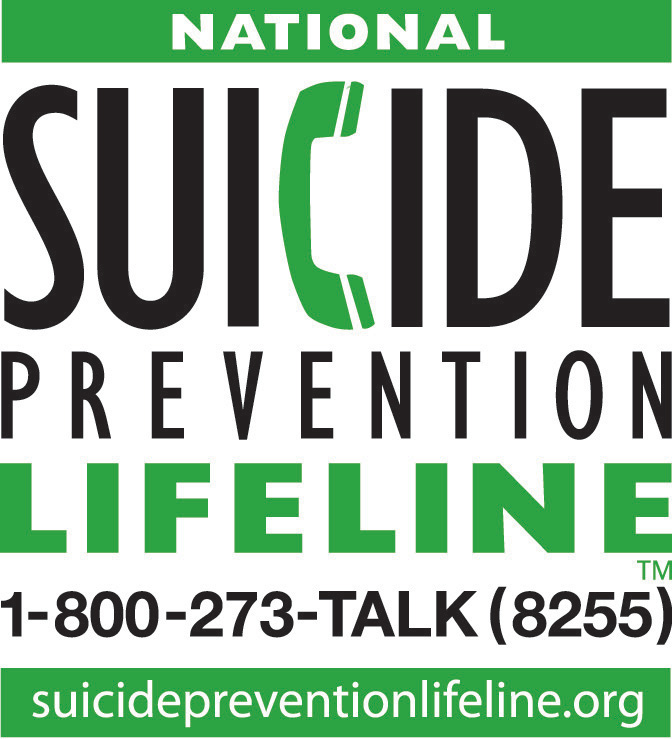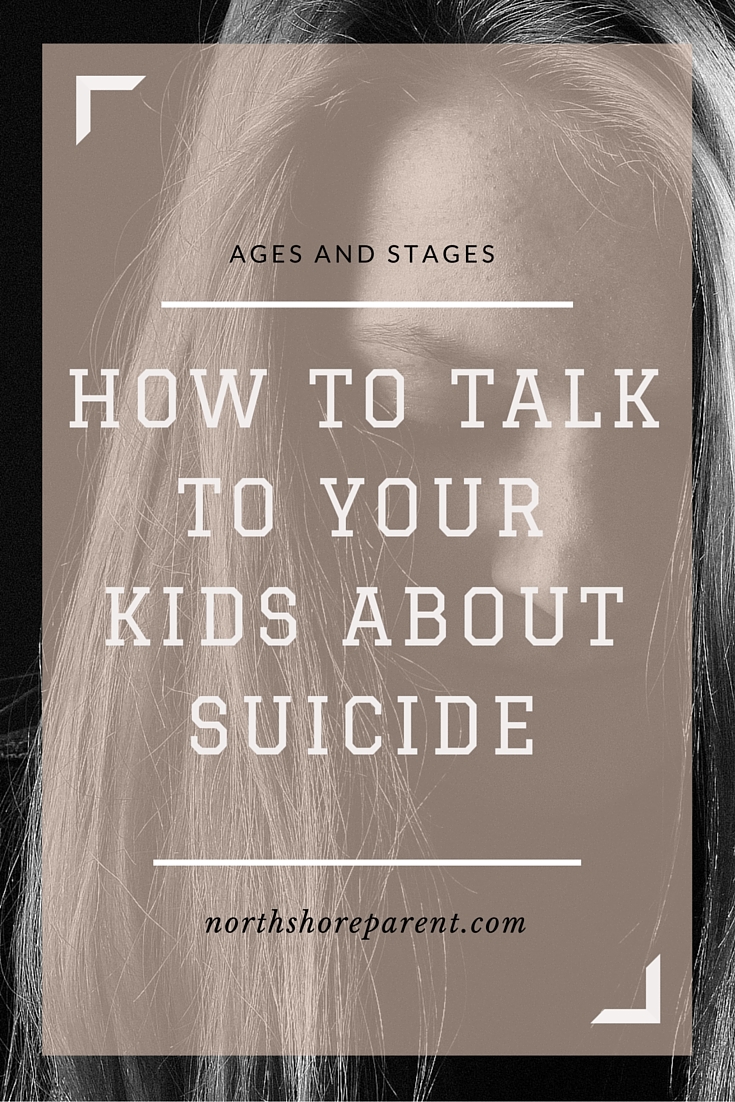Parents naturally want to protect their children from terrible things. Suicide is not a topic that any parent wants to discuss with their children, but when children are exposed to the topic of suicide on TV, radio, social media, the bus or on the school playground, it becomes imperative for them to first talk about it with someone they trust and feel safe with: their parent.
There are other compelling reasons to discuss suicide with your child. Hopefully your child will never struggle with their own suicidal issues, but chances are that as they grow older, they will come in contact with someone who is struggling. So now is a good time to have that conversation about suicide with your child.
[bctt tweet=”Suicide is the 2nd leading cause of death for 15 – 24 year olds. The 3rd for 10 – 14 year olds. ” username=”@nsparent”]
Before talking with your child, choose a quiet and confidential time and place. Decide, and maybe even practice, what you will say. Design your conversation around your child’s developmental level (more on that in a bit). And for any-age child, always listen to how they respond, acknowledge any feelings they may have, correct any misperceptions, and answer all questions honestly even saying “I don’t know,” if you don’t. You might even admit to your child that this is a hard subject for you to talk about.

Keep it Simple
For very young children your conversation can be simple and brief. Children don’t need all of the details. Basic non-graphic information is often sufficient. Explaining why someone took their own life to young children can be as simple as “the person who died by suicide may have felt very very sad and did not know how to end their sadness.” Young children do not need to be told how the person died by suicide but if they ask you can respond “they (state the method – for example, took a whole bunch of pills) and it made their body stop working and they died.” It is best for children to get this kind of information from a parent.
Keep the Lines of Communication Open
Always end the conversation by asking if your child has any more questions and then remind them that there are better solutions to problems and there are people who can help. Remind them that they can bring up the subject at any time with you. It is also a good idea to speak to the images that may have been created in the conversation, and may persist in their imagination regarding the suicide. Say to your child “sometimes upsetting pictures enter and stick in our head when people talk about upsetting things like suicide, if this happens would you please come and tell me?” Remember to check back with your child in a day or so to see if they have thought of any more questions.
[bctt tweet=”Contrary to myth, talking about suicide CANNOT plant the idea in someone’s head. ” username=”@nsparent”]
Here is a more detailed explanation for children from Suicide Awareness Voices of Education if you feel like you need to say more:
Our thoughts and feelings come from our brain, and sometimes a person’s brain can get very sick – the sickness can cause a person to feel very badly inside. It also makes a person’s thoughts get all jumbled and mixed up, so sometimes they can’t think clearly. Some people can’t think of any other way of stopping the hurt they feel inside. They don’t understand that they don’t have to feel that way, that they can get help.
Talking With Older Children
Older children may ask about moral issues regarding suicide being right or wrong. It is best to be non-judgmental, simply noting that people who die by suicide often misperceive that there is no way out of their pain other than ending their life.
If your child knew the person who died by suicide be sure to explore any guilt feelings he or she may have. Allow them to fully explain and express these feelings before assuring them that it was not their fault.
Always be direct. Ask “What do you think about suicide? Is it something you and your friends discuss? Have any of your friends thought about killing themselves? Have you ever had those thoughts?”
[bctt tweet=”“We are all our brothers’ and sisters’ keepers.” ~ Kevin Hines” username=”@nsparent”]
Suicide is on the Rise
Suicide is a serious public health concern that, according to a report published this month by The National Center for Health Statistics, has grown alarmingly in the past 15 years including among youth. It is important for everyone to recognize the warning signs of suicide risk.
Know the Warning Signs and Risk Factors
Warning Signs
Leading suicide prevention organizations recently published empirically supported suicide warning signs:
- Talking about or making plans for suicide.
- Expressing hopelessness about the future.
- Displaying severe/overwhelming emotional pain or distress.
- Showing worrisome behavioral cues or marked changes in behavior, particularly in the presence of the warning signs above. Specifically, this includes significant:
- • Withdrawal from or changes in social connections/situations
• Changes in sleep (increased or decreased)
• Anger or hostility that seems out of character or out of context
• Recent increased agitation or irritability
- • Withdrawal from or changes in social connections/situations
Risk Factors
In addition to warning signs risk factors are also important: One or more previous suicide attempts, family history of suicide, substance abuse, history of self-harm, victim of child abuse or other traumas, recent disciplinary action or shameful event, recent separation or loss of a loved one, exposure to stigma or discrimination, history of mental illness.
Additional Resources
Be sure to let children and teens know about these resources that have been shown to be effective in preventing youth suicide:


The following resources were used in developing this blog:
American Academy of Child and Adolescent Psychiatry; Facts for Families – http://www.aacap.org/
American Association of Suicidology – http://www.suicidology.org/
Society for Prevention of Teen Suicide – http://www.sptsusa.org/
Suicide Awareness Voices of Education – http://www.save.org/
This article written by:
John G. Hill, LCSW
Clinical Social Worker
Mercy Family Center
110 Veterans Blvd., Suite 425
Metairie, LA 70005
Douglas W. Walker, PhD
Chief Progams Director
Mercy Family Center
1445 West Causeway Approach
Mandeville, LA 70471

Guest
Latest posts by Guest (see all)
- Five Reasons Roller Derby is Great for Kids - July 26, 2022
- Air Force None: The Time My Child Refused to Fly - June 22, 2022
- Why is Such a Bad Idea Coming From Mandeville? {One Mom’s Opinion} - May 14, 2022

